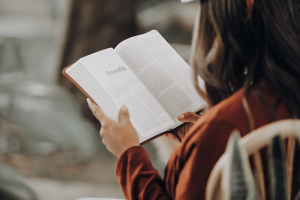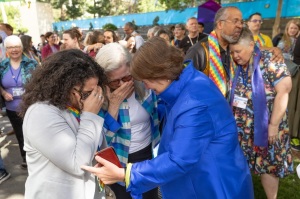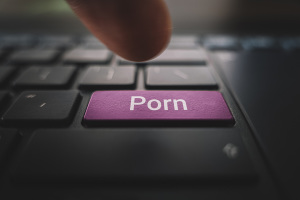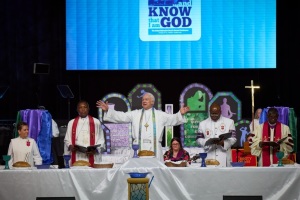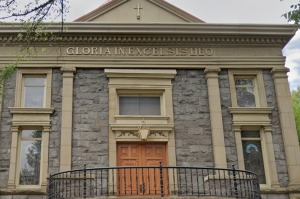#PrayforParis But Condemn #CoachKennedy? America's Prayer Paradox
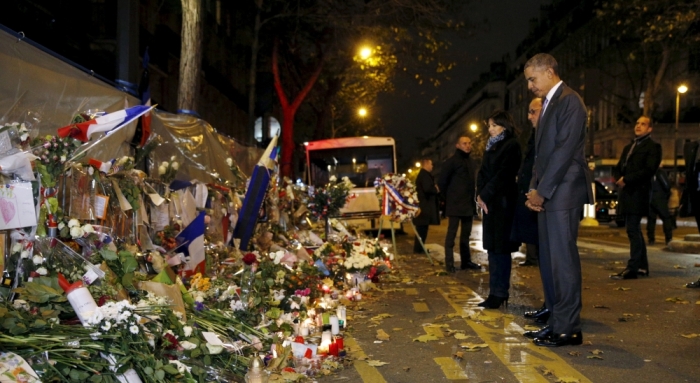
Just last month, Bremerton High School assistant football coach Joe Kennedy was suspended for praying on the 50-yard line after games — something he's been doing since 2008. Apparently, the school claimed that Kennedy's personal prayer was in violation of the First Amendment's Establishment Clause because it would appear that a public institution was endorsing a particular religion.
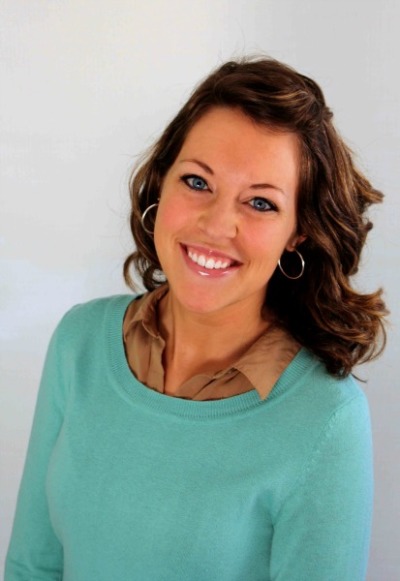
In the Bremerton School District's statement on Coach Kennedy, the school district stated that his "conduct poses a genuine risk that the District will be liable for violating the federal and state constitutional rights of students or others."
But last month, the deafening sounds of brutality in Paris, France, if only for a moment, have silenced prayer opposition. As scenes of bloodshed and the murder of innocent civilians panned across our television screens, prayers seemed to be the only appropriate words to utter. After the horrific tragedy, we saw expressions of solidarity like #PrayForParis or the NFL's loosened regulations on public display.
Isn't it interesting that a few in our society will fight tooth and nail to remove prayer from all public proceedings, like in the case of Coach Kennedy, yet when tragedy strikes — suddenly prayer is not so offensive?
Because the aggressor's target is often innocent civilians, acts of terror can be, to a degree, out of our control. The so-called "impregnable wall" crumbles in times of distress and vulnerability. When people feel helpless, it becomes evident that the only way to defeat evil is to call upon a Higher Being. We need Someone who is greater than us to discern ultimate justice and comfort those who mourn when we are unable. The rumored threats ISIS has made to cities like our nation's capitol and Chicago should awaken Americans to the fact that we must get on our knees.
But also, we must see the paradox that presents. It is contradictory for the public to acknowledge a Higher Power during disaster yet prevent people from praying in public in the day-to-day.
America, we must quit cherry picking prayer and religious expression. Contrary to what the Bremerton School District says, public prayer is not the genuine risk.
The genuine risk is when, in the name of political correctness, we forego the right of conscience.
James Madison once said that, "Conscience is the most sacred of all property" — for all people, not just Christians.
When the Founders of our nation declared sovereignty and separation, religious liberty was at the forefront of their minds. Religious freedom is a fundamental right of every man and the bedrock of any free society. The government of a democratic nation exists to protect the essential, inalienable right to personal conscience. To deny any American something so basic is incongruous with the values upon which "the Free World" was established. Our Forefathers envisioned a nation where all people were given the right to exercise their beliefs — free from government interference. Unless there is a compelling interest for involvement, the same should be true today.
Yet today more than ever before, these inherent liberties are being threatened by opponents of religious freedom. Aided by the Supreme Court of the United States, some have taken statements such as "the impregnable wall" and "separation of church and state" — phrases that are not found in any line of our nation's founding documents but in Thomas Jefferson's Letter to the Danbury Baptists Association — and made them pseudo-rule of law. Skewed interpretations of these phrases have redefined the First Amendment to be the antithesis of the Founders' original intent.
The First Amendment was not created to stifle religion but to liberate and protect the convictions of even the minority. For those of deeply held beliefs, political and social lives are influenced by faith — making it impossible to distinguish between the two. Liberals claim that under the First Amendment, one should "leave religious beliefs at home" or be deemed intolerant — which, ironically, is something the Founders sought to evade. Public education today teaches that the Constitution is malleable as opinion changes and that religion is not so much a core value as it is simply a "pastime."
But for many, that is the furthest thing from the truth. It's not a hobby like baseball; it's their basic foundation. Specifically for Christians, we believe that whether we're standing on the 50-yard line or ground zero, the very fact that we're standing is because God allowed it. Part of our core conviction is that prayer is just as important in the day-to-day as it is in the devastation. Prayer is not something that we can forego. It is direct communication with the Creator of our world (not to mention the best National Defense and National Security Advisor we will ever have). Yet, we've become so concerned with offending those who disagree with us that we've forfeited our fundamental rights.
In his book, Be Spent: Winning the Fight for Freedom's Survival, Mario Diaz, Esq., writes:
"Hostility toward religion is neither required by our Constitution nor desirable in a free and just society. Only those who are insecure of their position seek to impose it by force by silencing their opposition. The Christian citizen must be alert to those who seek to silence religious views and reject their freedom-stifling ideas. As long as we are able and committed to fight the abuse of the First Amendment with the virtues of the First Amendment, we shall preserve liberty and freedom. If we fail, oppression is sure to follow."
Speaking of oppression, just last year, a lawsuit was filed on behalf of The Little Sisters of the Poor, a Roman Catholic organization that was being forced to violate their religious convictions about the sanctity of life and provide abortifacients to their employees under ObamaCare's HHS Mandate. In Little Sisters of the Poor v. Burwell, the court ruled that the group would face fines if they didn't comply. The case is now before the Supreme Court. While the above are Evangelical and Catholic examples, religious liberty impacts everyone — even those who claim to have no faith. Nearly 85 percent of Americans report belonging to a faith to some degree.
May these recent events be a reminder that we should not only pray for protection, but also protection for prayer. Please, continue to pray for Paris — the victims and their families. Pray for the terrorists. Pray for America and the safety of all nations. But also, pray for religious protection — or soon we won't be allowed to say "Pray for Paris" without the threat of force — even in times of despair.
















